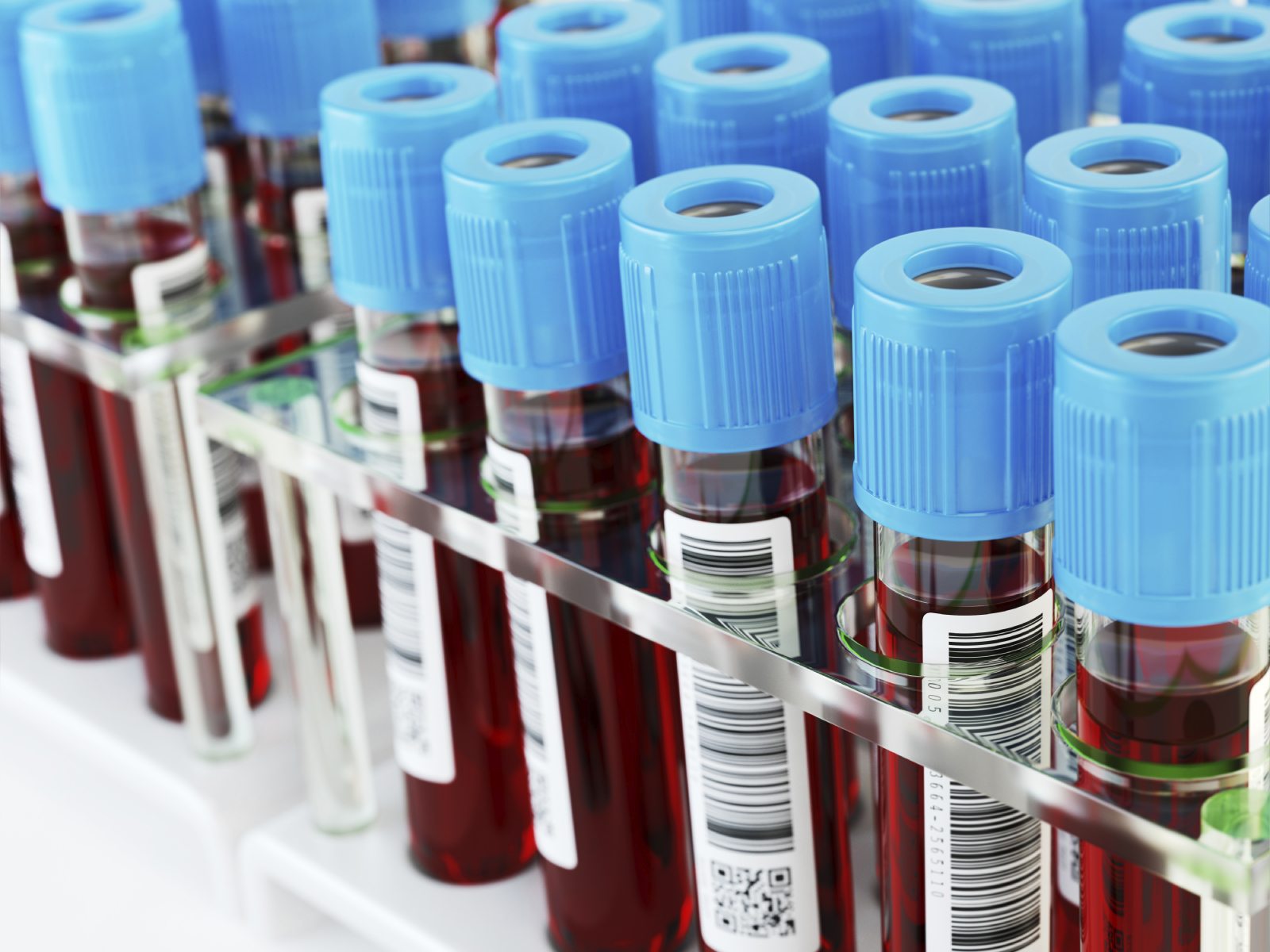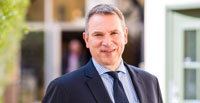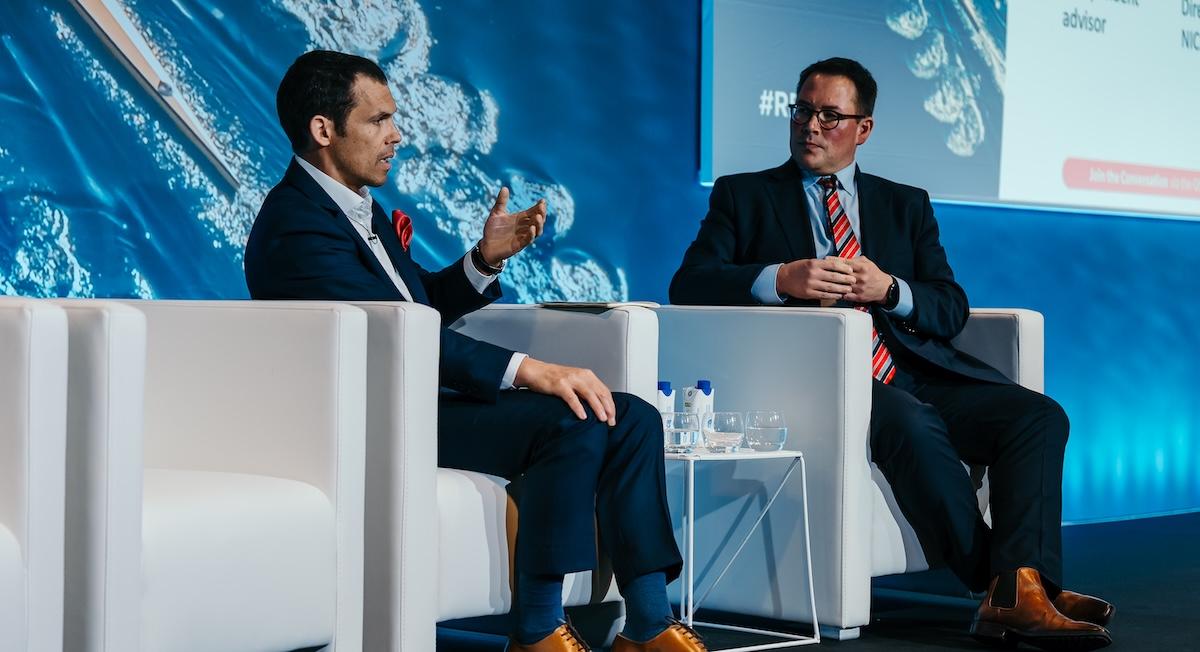A gamechanger in haemophilia? SOBI unruffled by Roche's impending therapy

The received wisdom is that a generation of new products in haemophilia A, led by Roche’s emicizumab and potentially curative gene therapies, will bring about a transformation of treatment of the disease, and rapidly displace current treatments.
But SOBI, a small but very fast growing incumbent in the market, says excitement about these breakthrough pipeline treatments is getting ahead of the science, and underestimating patient and physician demands for safety.
The company is one of many biotech, specialist pharma and start-up healthcare companies presenting at the two-day Jefferies healthcare conference for investors in London.
[caption id="attachment_34035" align="alignnone" width="200"] Guido Oelkers[/caption]
Guido Oelkers[/caption]
SOBI’s chief executive Guido Oelkers, hailed the company’s recent ‘phenomenal’ growth in its haemophilia franchise and said there remained a “vast opportunity to grow care” in its markets, regardless of impending competition.
Stockholm-headquartered specialist SOBI’s two lead products are in haemophilia: Elocta/Eloctate for haemophilia A and haemophilia B treatment Alprolix, both co-marketed with Bioverativ.
SOBI only holds the marketing rights for Elocta and Alprolix in the EU, Switzerland, Iceland, Liechtenstein and Norway, but is nevertheless enjoying very rapid growth, with its haemophilia sales growing 601% in the just-reported third quarter.
Elocta is the star product, and is already replacing existing products on the market, in particular short-acting recombinants. These older drug eventually produce ‘inhibitors' an immune response which stops the clotting factor VIII working in around a third of all patients, a problem which Elocta and other next-generation treatments can overcome.
A recombinant factor VIII Fc fusion protein (rFVIIIFc), Elocta/Eloctate is forecast to reach global peak sales of $1.5 billion thanks to patient-friendly dosing that increases the time between injections.
The drug is helping the partners win market share from established players such as Novo Nordisk, Pfizer, Bayer and Baxter.
SOBI’s Elocta sales reached 417m Swedish Kroner ($49m) in Q3 an increase of 633% compared to the same period last year, with the UK, Italy and France markets the largest contributors. Alprolix also produced good growth, and sales amounted to SEK 98m ($17m), an increase of 491% compared to Q3 2016, with the UK and Italy providing most of this growth.
However Roche’s late-stage emicizumab (aka ACE90) has been tipped as a game-changer in haemophilia. The once-weekly subcutaneous treatment for adults, adolescents and children with haemophilia A with factor VIII inhibitors is currently under review at the FDA.
This is an advantage over Elocta, which must be administered every 3-5 days when used as a prophylaxis.
The FDA’s decision is expected before 23 February 2018, and analysts predict that once approved, the drug could hit peak annual sales of $5 billion.
But while Roche has amassed strong evidence to back emicizumab’s efficacy in haemophilia prophylaxis, there are concerns over the drug’s safety.
Clinical trials showed adverse events including thrombotic microangiopathy, damage to blood vessels in vital organs. SOBI’s chief says this is the Roche drug’s Achilles heel compared to Elocta.
“Patients and physicians want a clean safety profile,” Oelkers told the investor audience at the Jefferies conference. “We feel we have something to offer here.”
He also pointed to Roche’s trial, which showed numerous high-risk patients had been excluded from the trial.
“If you take account of the patients they have excluded, they don’t really have an advantage in bleeds. We feel very positive to be in our shoes.”
Oelkers said contact between patients and physicians in the field was often just once a year, which contributed to a very conservative approach to switching away from products which patients were already happy with.
“There is a difference between the excitement you see at [medical] conferences and the real world,” he added.
Price will also be a major factor, and SOBI have pitched Elocta at only slightly more expensive than short-acting recombinants – a strategy aimed at maximising uptake which it says is paying off. Roche's product is likely to be much more expensive when it reaches the market.
SOBI has exceeded its expectations for 2017 so far, and has raised its forecast for the year, but Oelkers says it now wants to expand its reach outside Europe, especially in non-haemophilia speciality products.
The company says it is now looking to acquire assets to add to this pipeline, with the starting point being two of its established therapy areas, genetic metabolism and inflammation.
This diversification is nonetheless wise, as advanced therapies will undoubtedly transform the market over time. This year alone has seen huge advances in the gene and cell therapy field, which could soon provide an outright cure for a number of conditions (at least for some patients), including haemophilia B and A.
Spark currently has promising gene therapies, SPK-9001 in haemophilia B (with Pfizer) and SPK-8011 in haemophilia A in its pipeline, while BioMarin has also just gained a Breakthrough Therapy Designation for its haemophilia A candidate BMN270.












